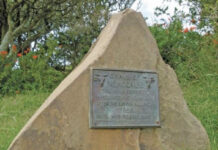
In Anglo-Saxon England the lowest form of government was the Hundred. Ideally a Hundred was made up of one hundred households. Its purpose was to provide for the poor, to act as law enforcement and to provide one man trained and equipped for war.
England at that time was a rural country, so a Hundred would have included a number of villages. And it would have included people of different social classes. An important thing to note is that while they needed to provide a soldier, every man was in fact a soldier, a member of the militia. But the equipped man was a professional soldier who would serve either the King or a local Lord.
Today normal people don’t have much to do with law enforcement, unless they work in that field, they are a criminal or the victim of a crime. In Anglo-Saxon England there were no police or courts. Or at least not as we understand them. If a crime was committed within a Hundred, then the members of the the Hundred were responsible for catching the perpetrator. What was known as the ‘hue and cry’. The Hundred was also responsible if a member committed a crime.
What relevance does any of this have for today?
Today we are policed by strangers and we live under the control of large impersonal bureaucracies. We are all strangers in our own land. The Hundred is a community, one where we need each other and one that provides support to our countrymen. To people outside of our Hundred.
Who better to know who needs help then the local community? You might argue that we don’t have communities now, to which I would reluctantly agree. The Hundred would return community to us. Because we would need it and we would need to contribute to it. It would return local authority to us, instead of that constantly being taken from us.
In practical terms it would be the lowest function of government. Even our local government is large and impersonal. This would bring it down to human level and its tasks can be decided by us.
I want to introduce you to the idea, the concept, of local people looking after local needs, the return of the community.
Originally published at Upon Hope.










